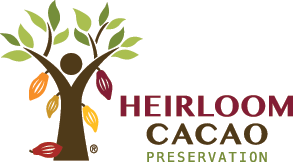/ Chocolate Resources / Chocolate Blog / Butter Part Three: Is there any substitute?

Butter Part Three: Is there any substitute?

Photo credit: Larry Jacobsen
Butter is primarily used in ganaches to create a smooth, rich mouthfeel. So, the question is: What gives butter that luxurious characteristic, and do other fats have it? This is the big question about butter these days with many people going dairy-free or exploring extreme flavour combinations (wasabi truffles anyone?)
Let’s start with a quick review of the types of fats used in confectionery, remembering that the rule of thumb is that when you mix fats, the more similar the structures of the two fats are, the more compatible they are. There are four main types of fats that we need to be concerned with in confectionery. We’ve made some simplified drawings to give you the idea – they’re not exact, but I hope that they help you to understand the basic fat structures.
Moderately saturated, long fatty acids are our first consideration in chocolate making, because this is the category of our primary fat, cocoa butter. As you can see from the diagram below, cocoa butter is a triglyceride, meaning it has three chains. Any other fat we work with needs to be compatible with cocoa butter to ensure a stable final product.

Fat Molecules – Cocoa Butter
Lauric fats come from coconut oil and palm oil, and they have both pros and cons associated with them. Some are manufactured particularly for confectionery applications where they become an economical replacement for cocoa butter. As artisans, most of us strive to provide only the best ingredients, so we would only use these fats when it is to our benefit. For example, you can add a fat such as coconut oil to chocolate to lower the melting point, creating a meltaway centre. Lauric fats are single chains, as below. These fats don’t bring great flavour to the table, they are mostly for texture.

Fat Molecules – Lauric Acid
Other single chain long and heavily unsaturated fatty acids come from nuts. If you have ever made a gianduja (or eaten one), you know that adding hazelnuts to chocolate softens the chocolate. This is because these long chains of fats interfere with the crystallization of the cocoa butter, preventing it from hardening as strongly as it does in pure chocolate. We put up with the structure interference of these fats because they bring amazing flavour to our pieces.

Fat Molecules – Unsaturated
Butterfats are also triglycerides, and a primarily straight chains. Butterfats look generally like this:

Fat Molecules Butter Fats
Look familiar? It’s no wonder that dairy butter and cocoa butter are the best of friends. Butterfat not only brings amazing flavour, but it fits very, very well with cocoa butter to create a stable structure that contributes to flavour and shelf life.
Finally, we’ve had some questions about margarine. Margarine is made of plant oils that look similar to the lauric acid above, and have been processed to create three chain fats like the one shown above. The problem with margarine is that the lengths of the chains vary widely, preventing it from mixing well with cocoa butter, and it has a lower melting point than butter (which is why it stays soft and spreadable when it is cold), so it doesn’t contribute to the structure of a ganache. As well, margarine doesn’t carry much flavour – its flavour is primarily from salt, which you can get add to your ganache other ways.
In our next (and last) post on butter, we will do some butter experiments and leave you with a great recipe!
To read the other posts in this series click on our Bean2Bonbon Blog overview page.
Want to learn more about making delicious chocolates and confections? Check out our Professional Chocolatier Program!
Get reminders about upcoming classes! To receive program updates and news, click the link below.
Photography by Jessica Washburn, Bliss Chocolatier and Ecole Chocolat





